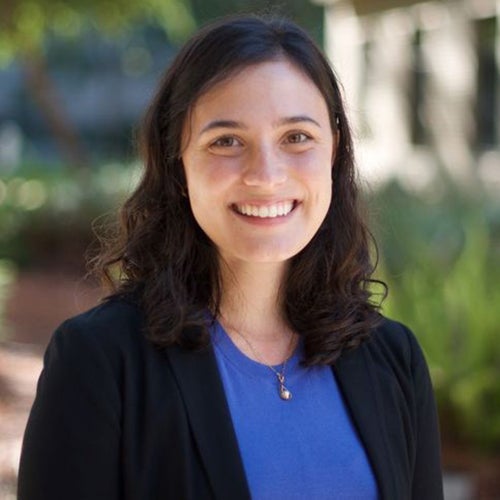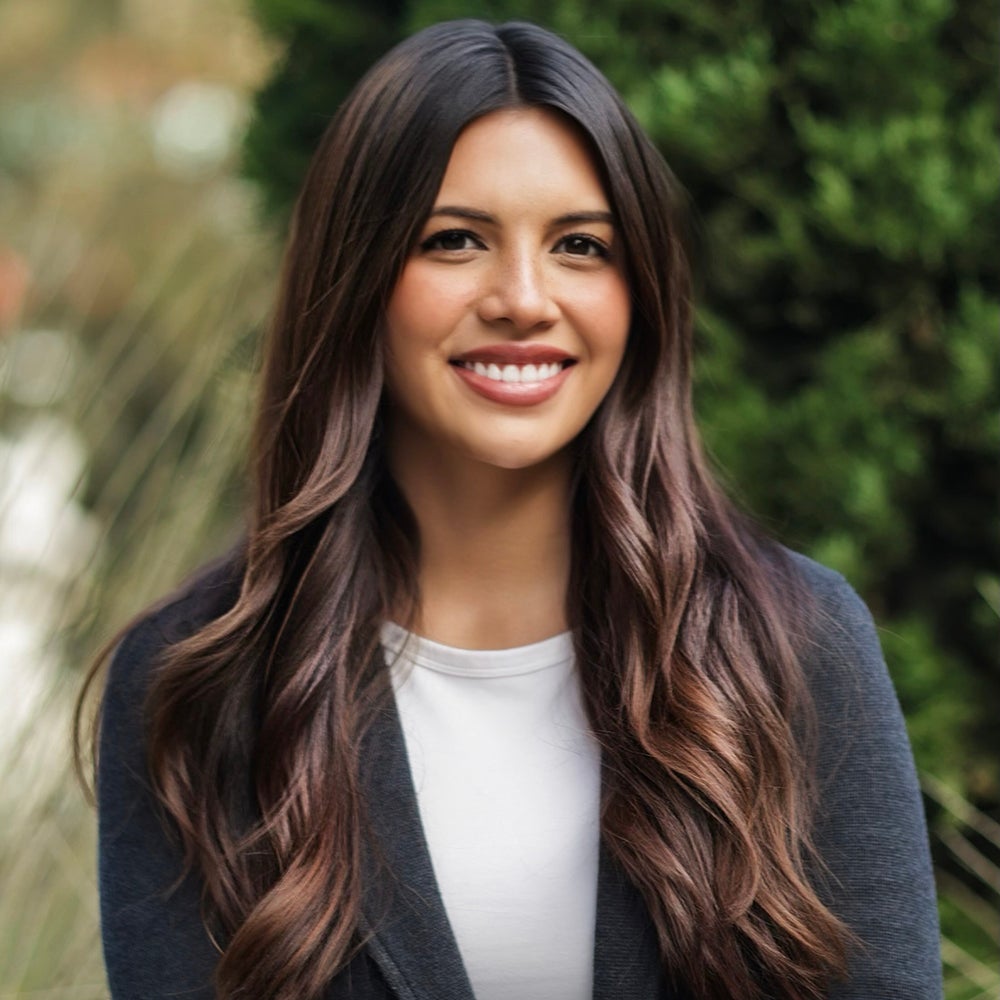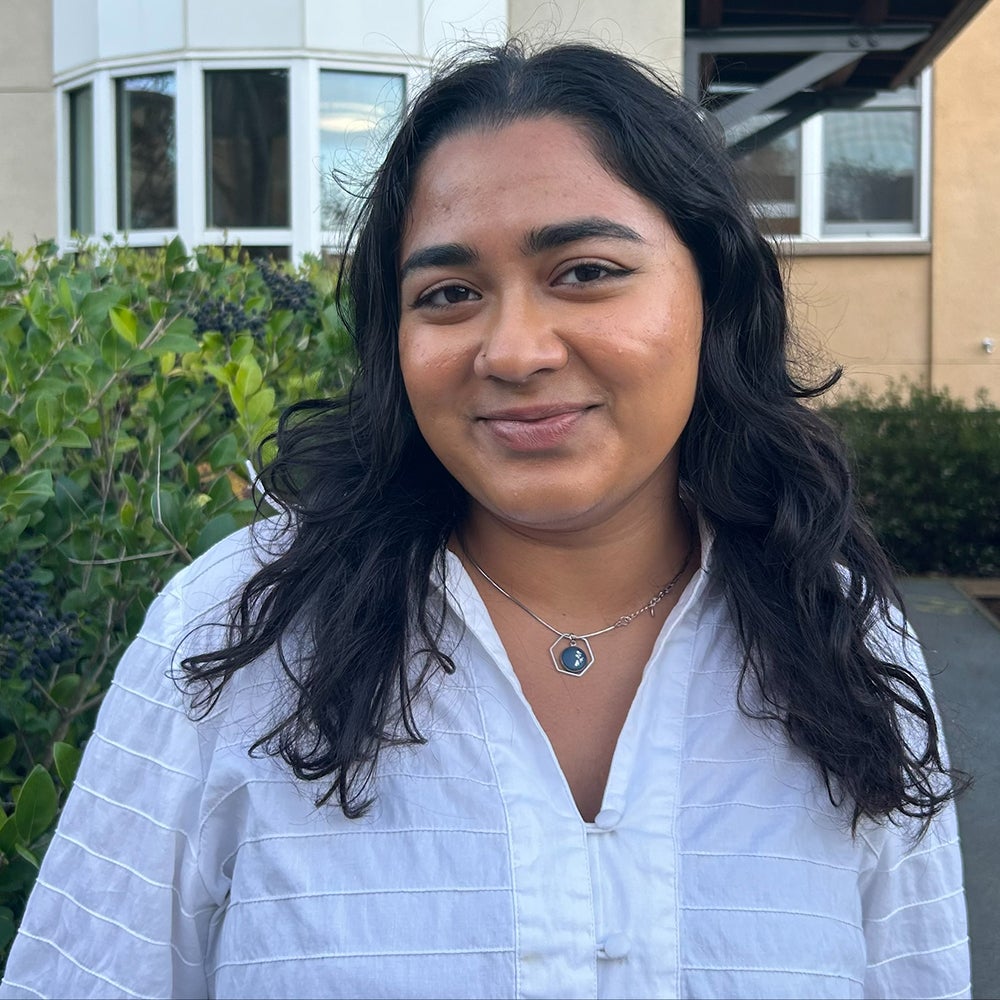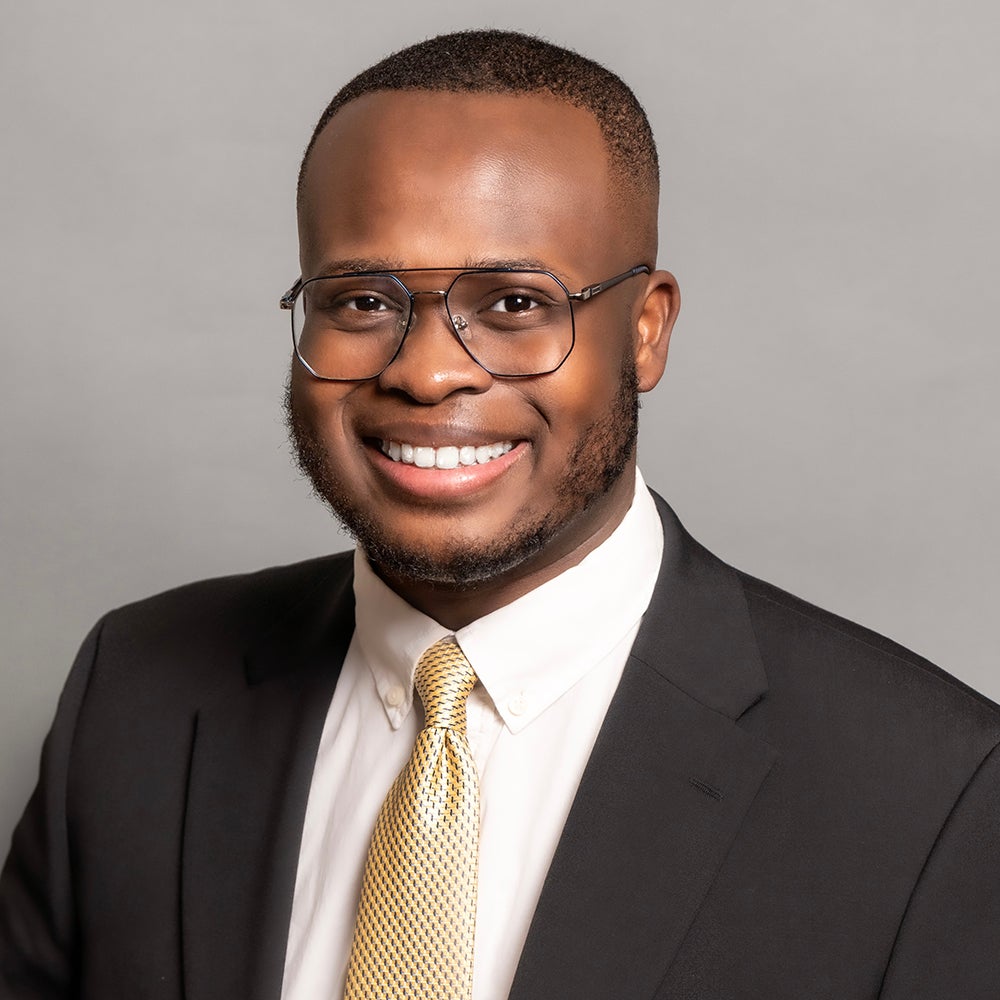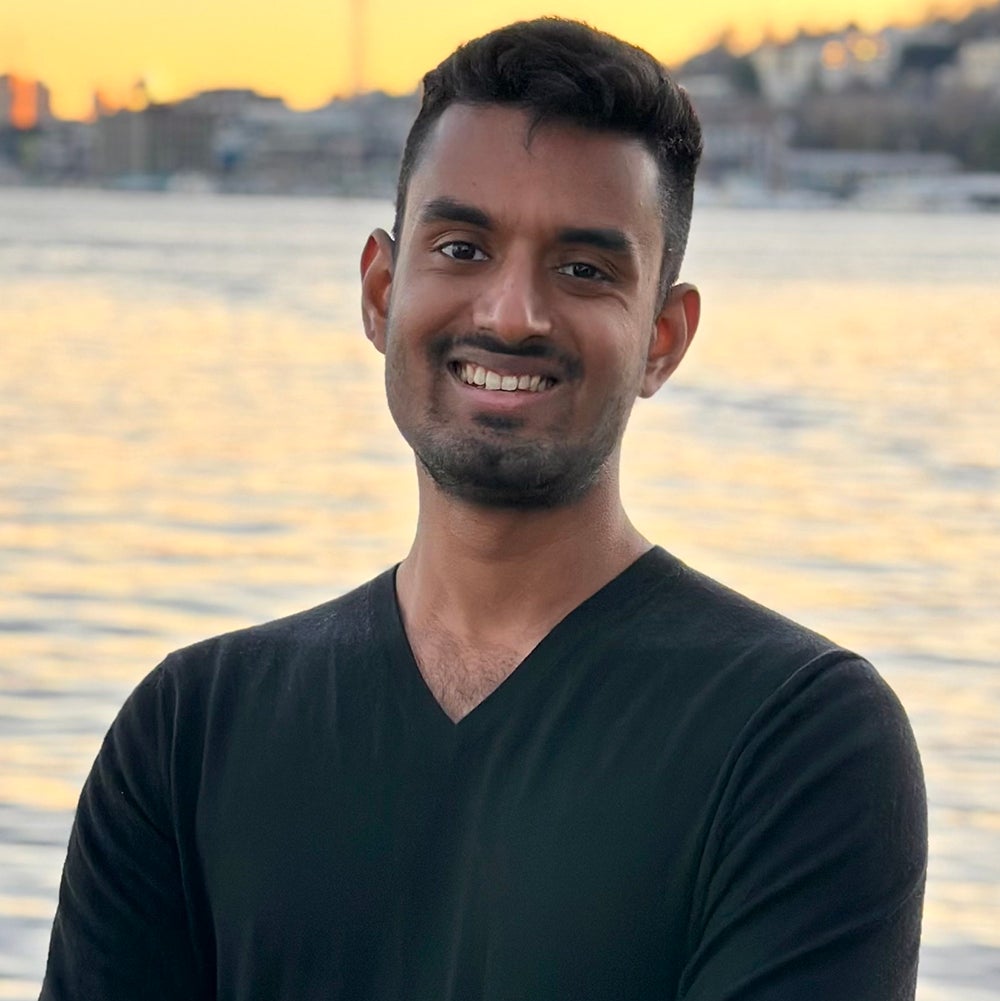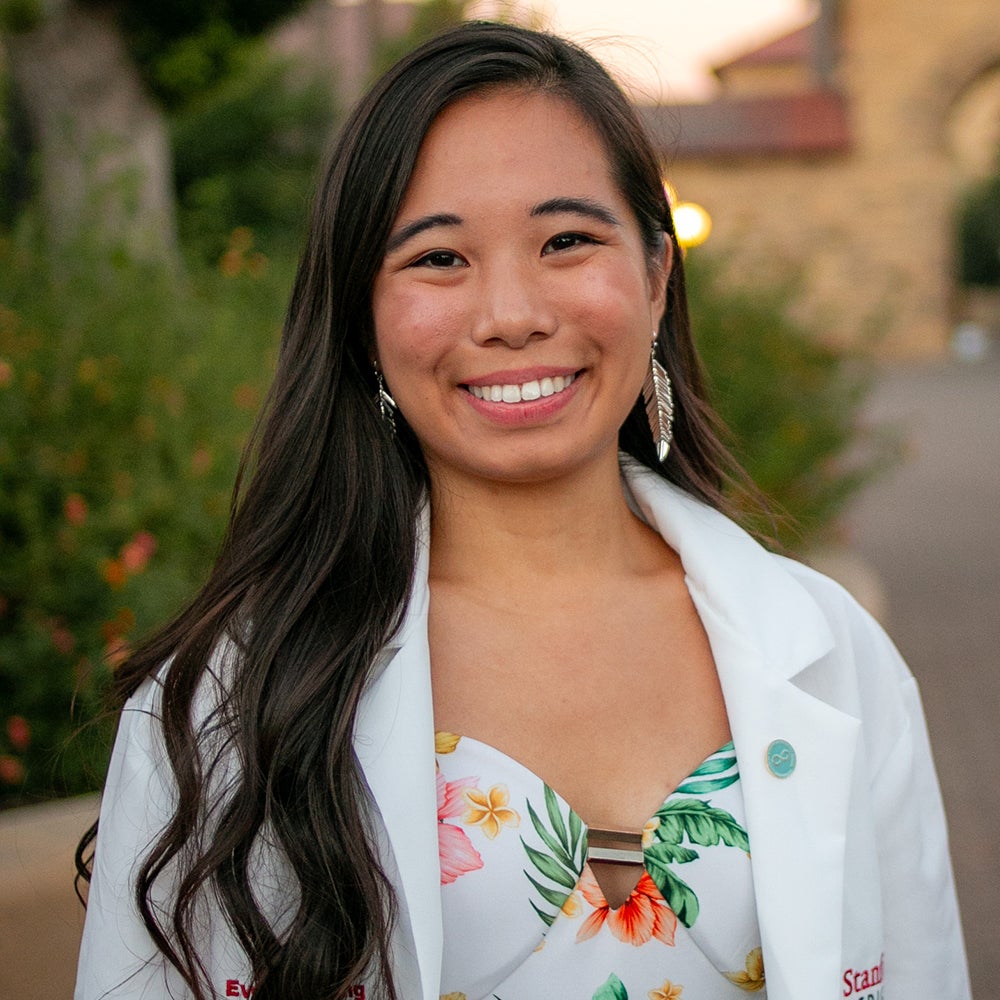Six Stanford graduate students are among this year’s recipients of the Paul & Daisy Soros Fellowships for New Americans, a merit-based program for immigrants and children of immigrants.
The Stanford students are among 30 outstanding scholars to receive the fellowship, selected for their achievements and their potential to make meaningful contributions to the United States across fields of study. They each will receive up to $90,000 in funding to support their graduate studies at institutions across the country.
Established in 1997, the fellowship program has provided more than $80 million in funding to students studying in a range of fields, from medicine and the arts to law and business.
Following are the 2024 Paul & Daisy Sorors Fellows from Stanford.
Sara Bobok and her family immigrated to the United States from Hungary when she was 2, seeking greater economic opportunity. She is pursuing a JD at Stanford Law School and a master’s degree at Stanford Graduate School of Education.
An advocate for children, Bobok spent high school summers volunteering at a Transylvanian orphanage and dedicated school years to fundraising and organizing donation drives for the children. At Harvard University, she studied social studies with a minor in mathematical sciences to better understand the historical, political, and economic roots of inequality.
Bobok has interned with the Public Defender Service for the District of Columbia, researched bail reform at Harvard Law School, designed civic engagement policy with Boston’s then-City Council President Michelle Wu, and served as a strategist for Hungary’s Momentum party. She also spearheaded a project on Hungarian child trafficking prevention, supporting the very orphanages that inspired her work, and served as director of the tutoring program for the Association to Benefit Children, a youth aid organization in East Harlem, New York. She aspires to be a lawyer, educator, and advocate.
Sharon Loa was born in Puente Piedra, Peru. At age 6, she and her mother relocated to Missoula, Montana. At Stanford, she is pursuing an MD/PhD in cancer biology.
At 16, Loa became a certified pharmacy technician, which led her to wonder how drugs behaved in cells and what effect they had on a patient’s body. Her interest in medicine led her to the University of Montana, where she studied biochemistry. There, Loa worked on research leading to the discovery of three novel protein structures using X-ray crystallography in Professor Klara Briknarova’s lab. Loa also restructured and transformed her university chemistry courses by creating training programs and mentorship opportunities.
After college, Loa received the National Institutes of Health Postbaccalaureate Research Education Program Fellowship at the Mayo Clinic. There, she established programs for postbaccalaureate fellows and underrepresented students entering medical schools.
She is on a mission to pioneer diagnostic methods to improve identification and treatment of diseases, deliver compassionate and equitable care, and shape the next generation of physicians through inclusive and innovative education.
Stanford senior Malavika Kannan was born in Johnstown, Pennsylvania, and grew up in Central Florida in a tight-knit community of Indian immigrants, including her parents, who emigrated from South India. After completing her bachelor’s degree in comparative studies in race and ethnicity this year, she will pursue a Master of Fine Arts in fiction.
Growing up, Kannan became increasingly aware of the impacts of gun violence, police violence, and racism on her community. In high school, she and her classmates organized a school-wide walkout against gun violence. Kannan also worked with such organizations as March For Our Lives, the Women’s March, and Giffords.
Kannan’s experiences as an organizer influenced her writing, an art form she views as inherently political, imaginative, and community oriented. Her writing on identity, culture, and politics has appeared in The Washington Post, Teen Vogue, Refinery29, and San Francisco Chronicle. She’s also the author of the young adult novel All the Yellow Suns. She intends to become a novelist and professor of literature.
James Occean was born in Port-au-Prince, Haiti, and immigrated to the U.S. at age 10. He is currently pursuing a master’s degree in bioinformatics at Johns Hopkins University. This fall, he will begin a PhD program in cancer biology at Stanford, supported by the fellowship.
Occean earned a BS in biomedical sciences from the University of South Florida, where he was a first-generation college student. There, he conducted epidemiological research to identify predictors and risk factors for intimate partner violence among women in his native country. He also researched how trauma exposure increases susceptibility to psychiatric disorders and studied genetic and epigenetic mechanisms that underlie post-traumatic stress disorder.
After college, Occean earned a postbaccalaureate fellowship at the National Institute on Aging at the National Institutes of Health. In Payel Sen’s lab, he investigated how changes in epigenetic modifications and chromatin drive mammalian aging and related decline. He also contributed to several peer-reviewed publications, secured over $140,000 in research grants for his work on DNA hydroxymethylation, and received the Early Career Scholar award from the American Aging Association.
Akshay Swaminathan was born in Wood-Ridge, New Jersey, to immigrants from Tamil Nadu, India. At Stanford, he is an MD candidate and is pursuing a PhD in biomedical data science. He is also a Knight-Hennessy Scholar.
After finding an online community of polyglots in high school, Swaminathan developed pedagogical techniques that helped him learn over 10 languages. At Harvard College, he used languages to connect with and serve others. He was executive director of Refresh Bolivia, a global health nonprofit, where he helped build a primary health care clinic serving Indigenous residents in Cochabamba. He led Harvard Chinatown ESL, a program offering free English classes to adult Chinese immigrants. He also published five textbooks to teach English to Chinese speakers. He is the founder of Start Speaking, which helps language learners improve fluency.
As a data scientist, Swaminathan builds data-driven tools for patients, clinicians, and policymakers. At Flatiron Health, he developed methods to analyze observational clinical data to support FDA decision-making. At the virtual mental health company Cerebral, he helped deploy a suicide detection system that served over 500,000 patients across the U.S.
At Stanford, Swaminathan is developing approaches to safely and effectively use artificial intelligence to deliver health care. He plans to become a physician, combining data science and medicine to strengthen health systems in low-resource areas.
Evelyn Wong was born in East Los Angeles, California, to Teochew-Vietnamese refugees. At Stanford, she is pursuing an MD/PhD in biophysics and is a Knight-Hennessy Scholar.
A first-generation college student, Wong graduated from Harvard University, where she studied neuroscience and Spanish literature. As an undergraduate, she received the Herchel Smith Fellowship for her thesis project at the MIT McGovern Institute, developing a next-generation protein sequencing platform. Beyond academics, she mentored young refugees in Boston and worked in free clinics serving undocumented and recently incarcerated individuals. She founded the nonprofit CovEducation, which provides programs and services to bridge academic achievement gaps. As a Marshall Scholar, Wong earned an MPhil from the Division of Medicine at University College London, where she optimized existing neurotechnologies to understand cortical brain function.
At Stanford she is developing flexible electrodes to record neural signals from deep, hard-to-reach structures in the mammalian brain. She is a co-director of the Stanford Asylum Collaborative, providing medical and psychological evaluations to support individuals seeking asylum in the United States. Wong aspires to a career as a physician-neuroengineer, working at the intersection of asylee health and neurotechnology to tackle technical and structural barriers to neuropsychiatric care.
